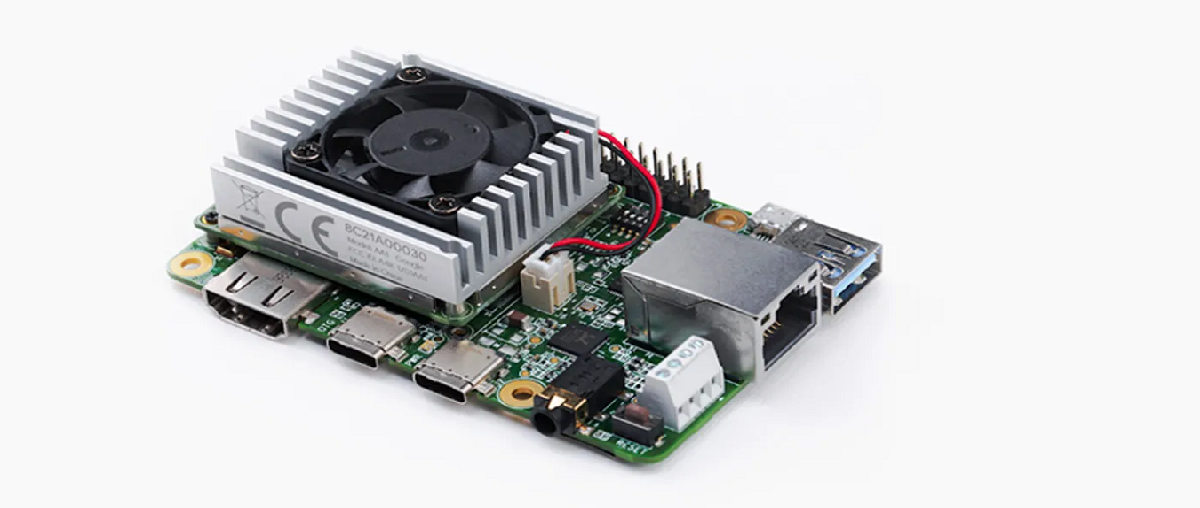
Without a doubt one One of the great characteristics of AI is that it allows machines to perform all kinds of tasks that were previously reserved for humans, in addition to that this greatly helps automate many processes, improving many tasks for people. You may have heard of Coral a device intended for an AI sector which is growing exponentially.
In which, to meet the needs from customers, Coral offers two main types of products: accelerators and development boards for prototyping new ideas and modules to power the artificial intelligence brains of production devices such as smart cameras and sensors.
In both cases, the heart of the hardware is Google's TPU Edge, an ASIC chip optimized to run lightweight machine learning algorithms, a miniature version of the cooled TPU used in Google's cloud servers.
The Coral USB Accelerator module has an electronic chip that used for artificial intelligence treatments made locally. Designed as an easy-to-connect peripheral, the Coral USB Accelerator module gives the Raspberry Pi nanocomputer all the intelligence Edge TPU integrated circuit.
With the ability to run neural networks on the RPi itself, you can quickly and efficiently incorporate artificial intelligence capabilities into your projects, while protecting the confidentiality of your data.
To create your neural networks and subject them to the learning process, the developers have TensorFlow. With which they only have to compile and run them on the Edge TPU cards using the provided software. Once the compiled network is installed, all calculations are done locally on the Edge TPU circuit, without sending data to the cloud. Any cloud lag is eliminated, performance improves, and user data is kept locally under control.
Like the Intel Movidius Neural Compute Stick released over a year ago, Coral USB Accelerator incorporates your custom ASIC in the form of an easy-to-use device that looks a lot like a flash disk. However, when comparing the two side by side, there are obvious differences.
The Coral Dev plaque consists of a card base with connections:
- USB 2.0 / 3.0
- DSI display interface
- MIPI-CSI camera interface
- Gigabit Ethernet port
- 3,5mm audio jack
- 4mm 2,54-pin terminal for stereo speakers
- Full-size HDMI 2.0 connector
- Two digital PDM microphones and a 40-pin GPIO header.
A 40 × 48mm removable module (SoM) system is attached to the base card built around an NXP i.MX 8M processor and the TPU Edge itself. The SoM has a cryptographic coprocessor, built-in Wi-Fi, and Bluetooth 4.1 support, as well as 1GB of LPDDR4 RAM and 8GB of eMMC.
On the other hand Coral, has its own system which is Mendel Linux which builds on the Debian foundation and it is fully compatible with the repositories of this project (as it uses unmodified binary packages and updates from the main Debian repositories).
The Coral platform also contains a set of ready-made models (pre-build and pre-learn), optimized for Edge TPU electronic chip. These flexible models make programming easy and adapt to your own applications.
While the equipment can be used by engineers to create projects, Coral offers guides on how to build a marshmallow sorting machine and a smart bird feeder, for example.
In addition to the long-term objective of the plate, it is that it aims its use for corporate clients in industries such as automotive and the world of health.
Although Coral targets the corporate world, the project has its roots in Google's range of "AIY" machine learning kits.
Released in 2017 and powered by Raspberry Pi computers, AIY kits allow anyone to build their own smart speakers and cameras and have been very successful in the STEM manufacturers and toy markets.